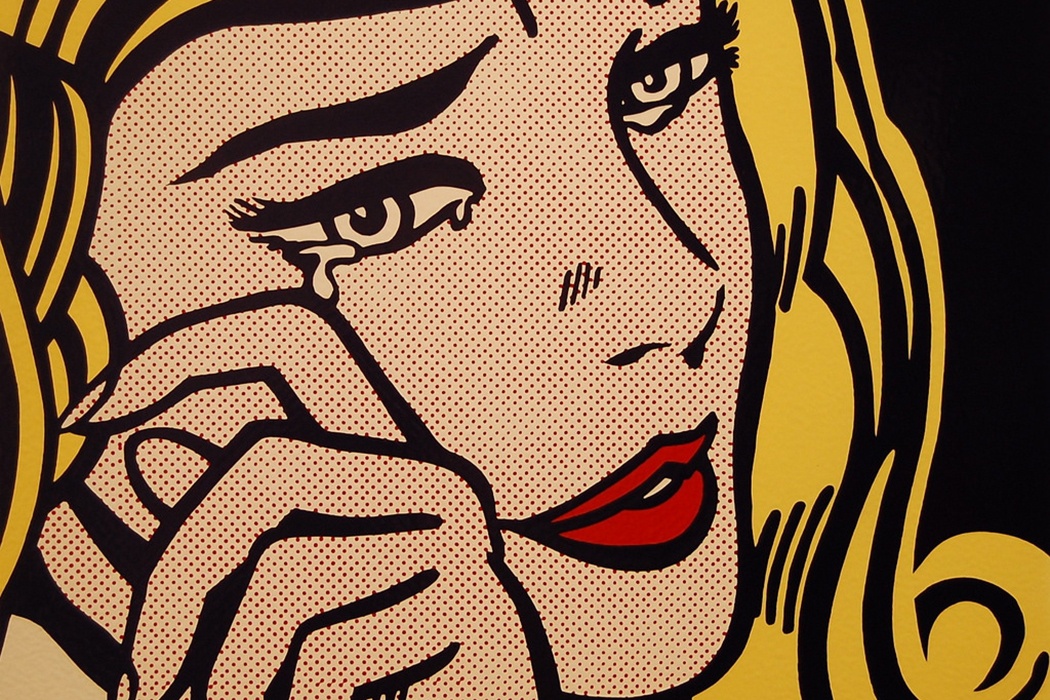The Sexual Revolution was never about freedom. It was always about control.
In Defense of Stigma

Society won’t survive unless we put the guard rails back up.
We are staring down the barrel of a world without social norms. This summer of riotous unrest has only exacerbated a trend that was hurtling forward to begin with: in the name of unfettered free choice and “destigmatization,” progressives of every stripe have demanded we not only abolish, but positively invert, every social norm.
To mark the conquest, as any victor does, the advocates of unfettered choice have found it necessary to parade the spoils. It is not enough to tear off our former cultural girdles: traditional social norms are not only being defeated, but inverted. Under the banner of diversity and inclusion, new transgressive duties are imposed to replace the old authoritative ones. Now, at a time when the initiation rituals of our culture are essentially “whatever may piss off your dad,” a discussion about what traditional norms mean (or meant) and what they could mean in the future is warranted.
Though collective norms change through the ages, there was never a time when an absence of norms was normative itself. Until now, that is: in the late hours of post-modernity, non-judgmentalism and tolerance are the highest order in our current culture. Arguably, rejecting order is the only true order. And to mark the occasion and make sure we don’t slip into old habits, the culture rallies around giving alternative lifestyles their time in the sun. We’ve replaced local norms—which, stipulated, were often stifling—with a very loose set of global commandments that, to meet the test of the global, need to overcome the parochial.
This drive for openness is understandable. We live in a globalized world where interactions between diverse people need to be smoothed out, to be standardized for global production and consumption. You are a member of the global village first, then, if there’s any local village left, you may be a member of that as well, but only within the bounds of your new supreme law. We need to be tolerant above all, just to make this thing work.
A contemporary stage for this conversation is the problem of sexual norms. Sex-positive feminism, the normalization of sex work, and a constellation of alternative sexual arrangements such as polyamory (polygamy?) have moved into the spotlight. The call is to destigmatize and normalize. The Left and libertarians alike make a powerful argument: “What’s it to you?”
Their point is compelling: people are different, and for some people, traditional arrangements in love and life may not be the best fit. Individual people have distinct personal preferences, and if they so desire, they should be able to exercise choice.
The problem arises at the collective level.
The Sex Worker Society
Societies and communities, if they are to mean anything, are a product of their culture. Culture, beyond its formal, visible artifacts like paintings, music, and corndogs, represents the invisible web of informal knowledge and rules that tie people to each other. These informal bonds are the stories and myths you share with others in your community. They inform you about the perspective on reality that other people have because they mirror your own. I know what you believe because I believe it too. From these myths, tales, and, importantly, taboos, we collectively generate norms.
A norm is not just what you know but also what’s expected of you from the other members of your collective. Norms encode essential information about what it means to be together.
A society is downstream from what its collective myths generate.
Our global and very vocal new collective myths around sexuality optimize for “shame minimization in the individual” and “tolerance of any lifestyle that is not directly a threat to others.” Even if these are noble goals on the level of the individual, on a collective level, this is not what myths are for. Myths, tales, and other memeplexes exist for group coordination.
For any culture, it makes sense for myths to exist to support behavior that focuses on selflessness and the next generation, propagating both its genes and its memes. Among other things, Christianity served as one such memeplex that embedded pro-social norms and, while it conferred sanctity to the individual, nevertheless always framed human life as a part of a collective.
Christianity, like other religions, is a self-propagating myth—this is not to pass judgment on the truths of its history one way or another. It is simply to point out that Christian teaching gives its adherents a way of understanding themselves, and their progeny, as more than merely interchangeable automatons. It tells them a story about who they are, what they must strive for, and why.
Arguably, a hollowed-out shell of Christian principles still acts as a brittle coordination mechanism in the West. How long the scaffolding will hold, even at the current level of rust, is not clear. Its successor, the “choose your own adventure” meme of the late 20th and early 21st century, isn’t a self-propagating myth because it can’t account for the collective. The adventure is, by definition, solo.
The Choiceless Choices of Infinite Freedom
Traditional norms have incorporated millennia of wisdom that an 18-year-old, though technically adult, can’t begin to fathom, both at the collective and individual level. The unguided young adult, born into a world that has been thoroughly de-normed and destigmatized, isn’t a perfect choice machine. The lack of supportive mythology limits her ability to choose her own adventure because it eliminates the wisdom encoded in tradition.
The thing about humans is, where there is more than one person, there are always norms. If societies do not proactively shape them, they will arise from our most base and short-term desires, whose fulfillment becomes a norm in itself. So, in the absence of guiding morality, the young adult will gravitate toward the norms set by her similarly confused peer group, who are still LARP-ing rebellion against 1950s father figures they’ve usually only seen in movies. Tradition was (allegedly) the cage of our ancestors, and the new anti-norms will finally make us, the individuals, free to choose and overcome arbitrary conventions.
So, for the young adult, born into normative normlessness, what does life look like? She (the ideal young adult today is female) is a magpie, gravitating toward every shiny new thing, doing experiments in living, always customizing her experience through ever more varied, but ultimately superficial, choices. She optimizes for individual preferences also because she interfaces first and foremost with the global market—a market that, beyond its admittedly magical powers of wish-fulfillment, can’t see her as a member of a community. She is a producer/consumer with desires that grow ever more sophisticated at the speed at which the market can satiate and then create them anew.
A lack of local norms works well in the global market because the price of admission is agreeing to leave your roots behind, to play well with others, to consume the global goods. The fact that there were no roots to begin with saves the system a few steps.
Every additional step in crushing stuffy tradition is another step toward expanding choice, but only in the narrowest sense. Choice is emergent from the world we live in, from the culture and communities we are a part of, often with millennia of embedded wisdom that doesn’t come with your firmware at 18 years of age. We choose what kind of life to live against a backdrop of what kind of life most people live, and what kind of life our ancestors valued. That’s the only context in which choice has any meaning at all—if there are no norms, choice is all but infinite—and meaningless.
In the strictest sense, the un-civilized and un-cultured individual is limited to choices led by his impulses. He is trapped in the short term because he is deprived of the wisdom that there is a sacredness in the long term, a sacredness in selflessness.
Norms, taboos, reputation, and shame are how societies coordinate informally around collective goals like cohesion, understanding, and, ultimately, survival. If a society not only allows for the destigmatization of its taboos but actively encourages it, or simply doesn’t frown on defectors, that society cannot sustain itself for long. Myths that help coordinate groups of people, religious or secular, are almost indistinguishable from the stigma they entail.
Stigma has no positive connotations today. It is merely a synonym of the dreaded intolerance that needs to be left at the door of the global village. But for norms to mean anything, something must happen when they are violated. In that sense, the stigma is the pro-social meme because it is the enforcer of it. A norm that is 100% carrot, 0% stick is not a norm, especially one that requires tradeoffs for the long-term because it lacks skin in the game.
Paying the Cost
The truth is that stigma can be traumatic for the individual. It can hurt and alienate in myriad ways. But that doesn’t mean that it is disposable at the collective level. The stigma ensures the norms of the world that our 18-year-old wakes up in are guiding her into a direction that makes sense for both her and the group she is embedded in.
The sex-positive world of ubiquitous cam girls and normalized sex work is one that maximizes short-term material gain for the individual. Few will deny this. Yet at the same time, few have romantic notions about aging in the industry and flourishing beyond a few good years without having to veer off into the tricky world of increasingly baroque fetish porn.
Beyond the potential mental health consequences for those pursuing such a course, the adverse effects for the group are immense and cumulative. Yet if the short-term, material benefits of engaging in sex work are high, and they are, then in the absence of a strong moral framework there is no reason this destructive porn spiral can’t become the new normal. The incentives are aligned: potential consumption is maximized, GDP is booming, and, to sweeten the deal for your average global citizen, this is also what would piss off the guiding 1950s dad avatar.
Those who advocate normalizing everything (but what dad says) also often claim that though people may get hurt if we take away our social guard rails, not everyone does—in fact, some people are freed to express their true selves in ways they couldn’t in more traditional societies. There is a caste of the enlightened among us, people rational enough to partake in taboo delights. Why shouldn’t they be able to, if they so choose?
But if that’s the case, isn’t that what the rebels have always done? Haven’t the chosen people always bent rules that were only bendable because they were rules? If there are no such rules, what is even the meaning of those formerly taboo acts? And as long as there’s room for rebels to brave a little social stigma and act how they want, what’s the argument for tearing down our entire civilization just so those few can do things they would already have done?
Normalization is the opposite of bending the rules. It is the demand that we abolish them to comfort those that would rather not be seen as defectors. So, to solve the problem of shame, we make everyone a defector. The stark truth here is that the vast majority of people cannot take it. They are better off sticking with the program, having a guiding light, waking up to a world of useful norms that protect them and the society they live in. Ridding our communities of moral taboos that the enlightened can do without will hurt these people most, as it has already if we look at the desperation left in the wake of the sexual revolution.
So, even if some custom arrangements may be better for some, killing the memes that are best for most is terrible for everyone.
The American Mind presents a range of perspectives. Views are writers’ own and do not necessarily represent those of The Claremont Institute.
The American Mind is a publication of the Claremont Institute, a non-profit 501(c)(3) organization, dedicated to restoring the principles of the American Founding to their rightful, preeminent authority in our national life. Interested in supporting our work? Gifts to the Claremont Institute are tax-deductible.
Conservatives have to get smarter about sexual politics.
Life won’t wait. Neither will babies.
The data is in: women aren’t happy.




